Best
Affordable Beginner Clarinet
-
Overall: Matte ABS body for durability and wood-like sound.
-
Best Feature: Responsive nickel-plated keys with undercut tone holes for better intonation.
-
TedScore™: 8/10
Best
Overall
Beginner
Clarinet
BB Clarinet Quality, Versatile Clarinet
-
Overall: Bb clarinet with Boehm key system,
17 keys, and 6 rings. -
Best Feature: Nickel-plated keys
and Valentino pads. -
TedScore™: 9/10
Best
Value
Beginner
Clarinet
Student
Clarinet High-quality Student Clarinet
-
Overall: Attractive satin wood-like appearance.
-
Best Feature: Drop-forged nickel-plated keys with undercut tone holes.
-
TedScore™: 9/10
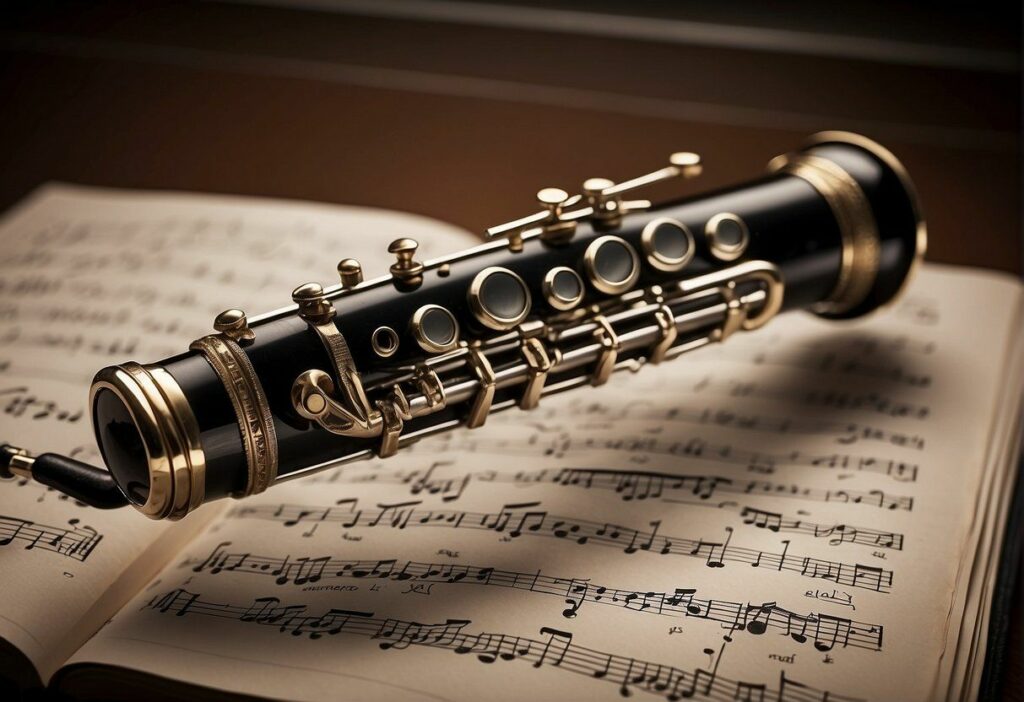
Understanding what type of clarinet is best for beginners is the golden ticket to kickstarting this adventure.
Choosing from different types of clarinets can feel like finding your way through a maze of tubes and keys. As a clarinet player, I recommend the Bb clarinet as the friendliest companion for the budding musician.
Continue reading, as I’ll ensure you’re wise to the brands that earn a standing ovation from teachers and students alike. Let’s explore the wonderful world of clarinets together!
Criteria for Choosing a Beginner Clarinet
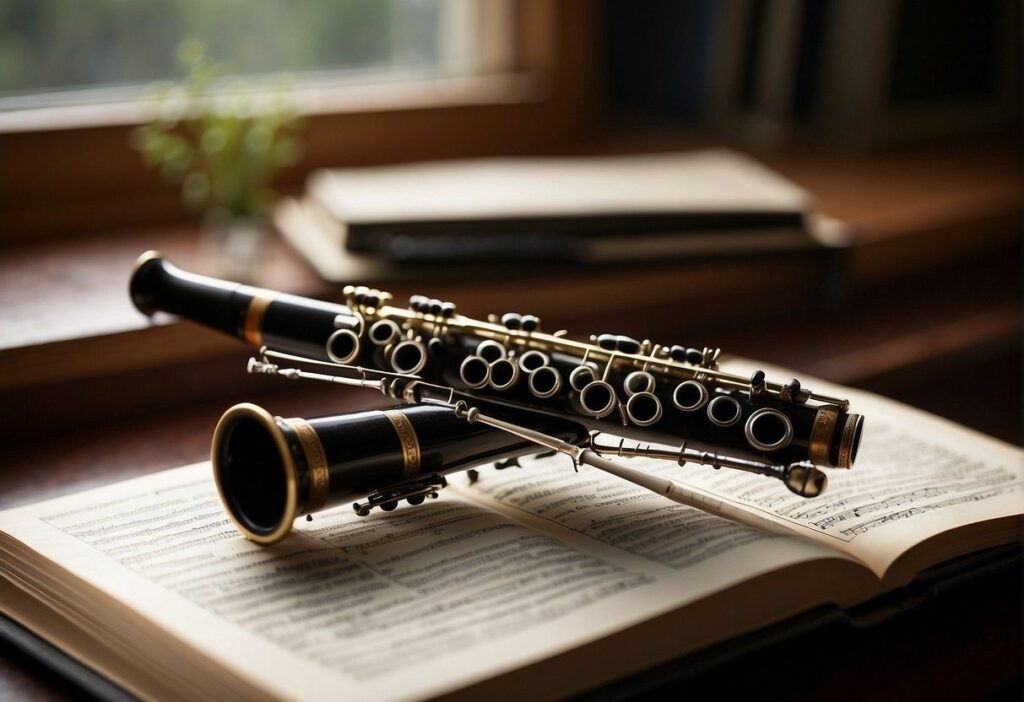
When I first ventured into the world of clarinets, I recall picking the right beginner instrument as pivotal.
The clarinet I chose had to tick certain boxes: a sweet sound quality for the ears, durability to withstand the trials of learning, and ease of play to keep frustration at bay.
Sound Quality
Sound is the clarinet’s voice; it communicates the player’s emotions and intentions. An ideal beginner clarinet projects a consistent sound that maintains its character across the instrument’s entire range.
It should tune well with other instruments, which is mostly the case with those tuned in B flat, a common choice for novice players due to its versatile and melodic tones.
Durability
I’m all too aware that the journey of mastering the clarinet can be quite the escapade, full of unexpected bumps and tumbles. That’s why a beginner clarinet must be robust.
It should be constructed from materials that can handle the occasional knock without compromising tone. ABS resin bodies, often seen in student models, offer a resilience similar to wood while being cost-effective.
Ease of Play
Ease of play is essential for keeping spirits high and enthusiasm unabated. Beginner clarinets should possess a forgiving nature, allowing for smooth playability with less effort to produce each note.
A good setup includes features like an adjustable thumb rest to aid hand positioning and lightweight keys that respond readily to a beginner’s touch.
Remember, when selecting a student instrument, it’s essential to prioritize quality and playability to ensure a positive learning experience. For an intermediate or advanced student, investing in a high-quality instrument can significantly enhance their musical development.
Construction Materials and Durability
In exploring the best clarinets for beginners, it is imperative to focus on two critical components: the materials used for the main body and the quality of the mouthpiece and reed.
These factors are often decisive in the instrument’s longevity and playability.
Wooden vs Plastic Clarinets
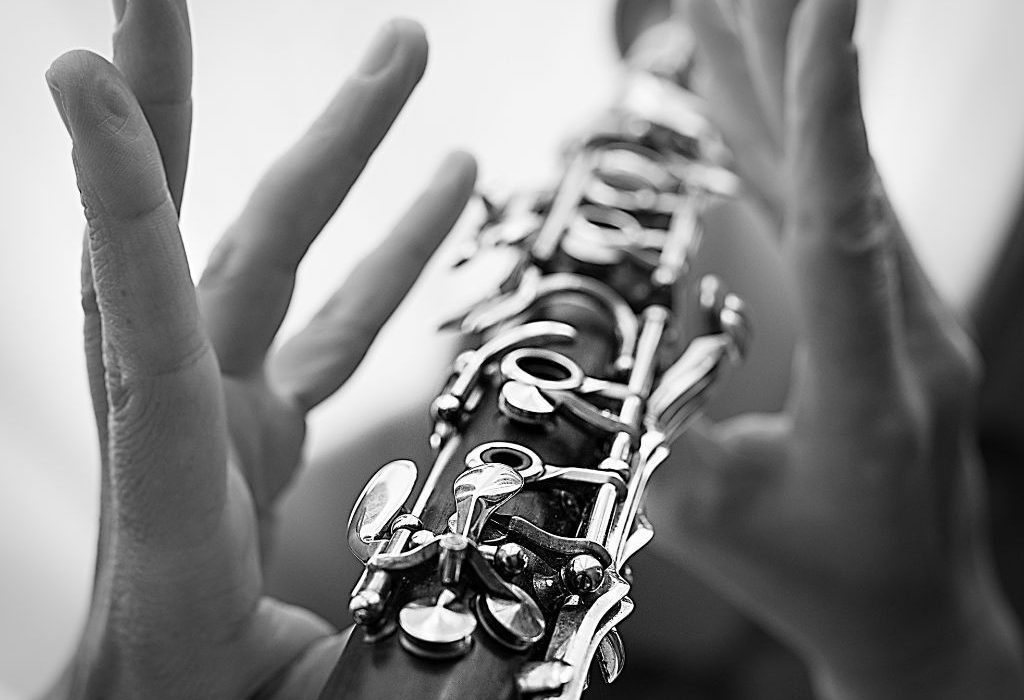
The choice between wooden and plastic clarinets pivots on striking a balance between sound quality and resilience.
Wood clarinet, crafted from materials like grenadilla or rosewood, boasts a warm, rich tone that mature players adore.
However, they require meticulous maintenance and are more susceptible to environmental changes.
For amateur musicians, plastic clarinets offer robustness and a more forgiving nature, especially regarding variations in temperature and humidity.
Their construction from ABS plastic—a material notable for its durability—plastic instruments an ideal choice for younger students and players in marching bands.
Consider upgrading to a wooden instrument for enhanced tonal depth and resonance for intermediate clarinet.
In contrast, a plastic instrument can be a practical and durable choice for beginners.
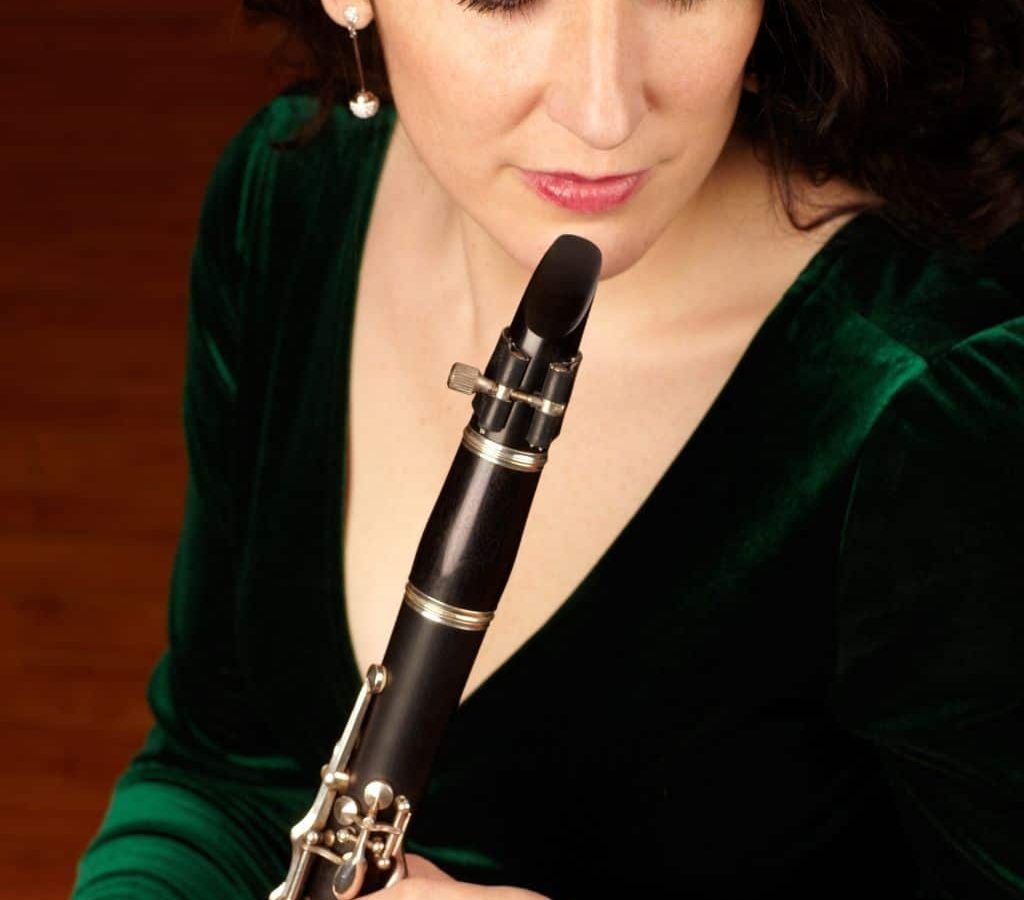
Mouthpiece and Reed Quality
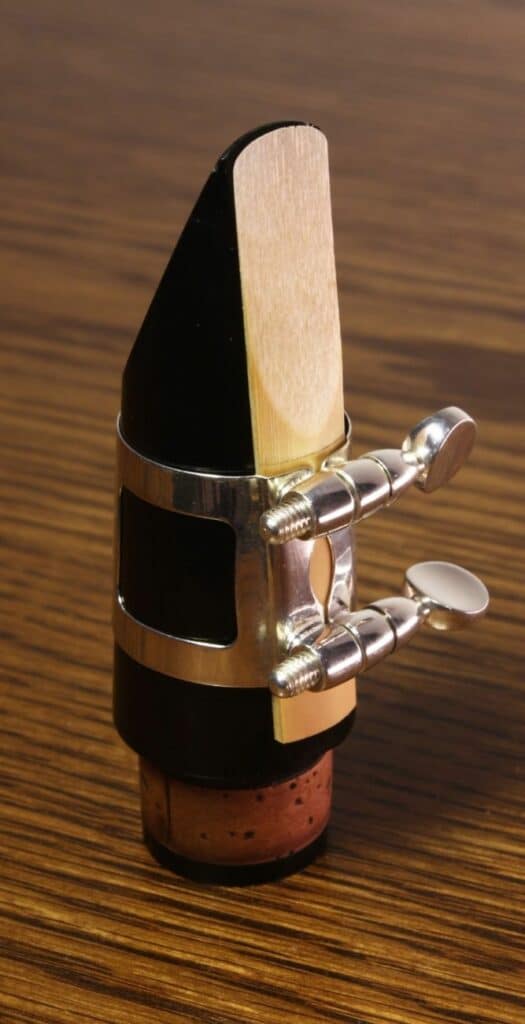
The mouthpiece serves as the gateway to producing a clarinet’s soul-stirring sound.
An optimal beginner’s mouthpiece should be crafted to facilitate ease of play and a consistent tone.
Ebonite, a form of hard rubber, is commonly used for its resistance to damage and capacity to produce a clear, focused sound.
As for reeds, they profoundly influence the instrument’s response and tonal quality. Beginners typically start with softer reeds (around a 2.5 strength), which are less challenging to play and aid in developing a proper embouchure.
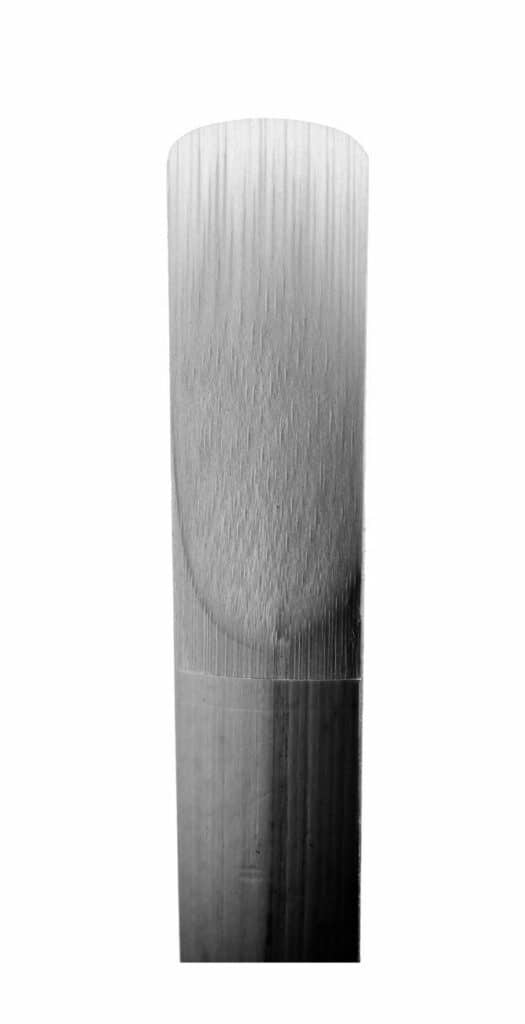
Matching a quality reed with a well-crafted mouthpiece is essential to ensure the clarinet’s optimal performance.
Recommended Beginner Clarinet Models
When I think about recommended clarinets for beginners, two models vividly come to mind: the Yamaha YCL-255 and the Jupiter JCL700.
These models balance quality, reliability, and value for those new to the woodwind family.
Yamaha YCL-255
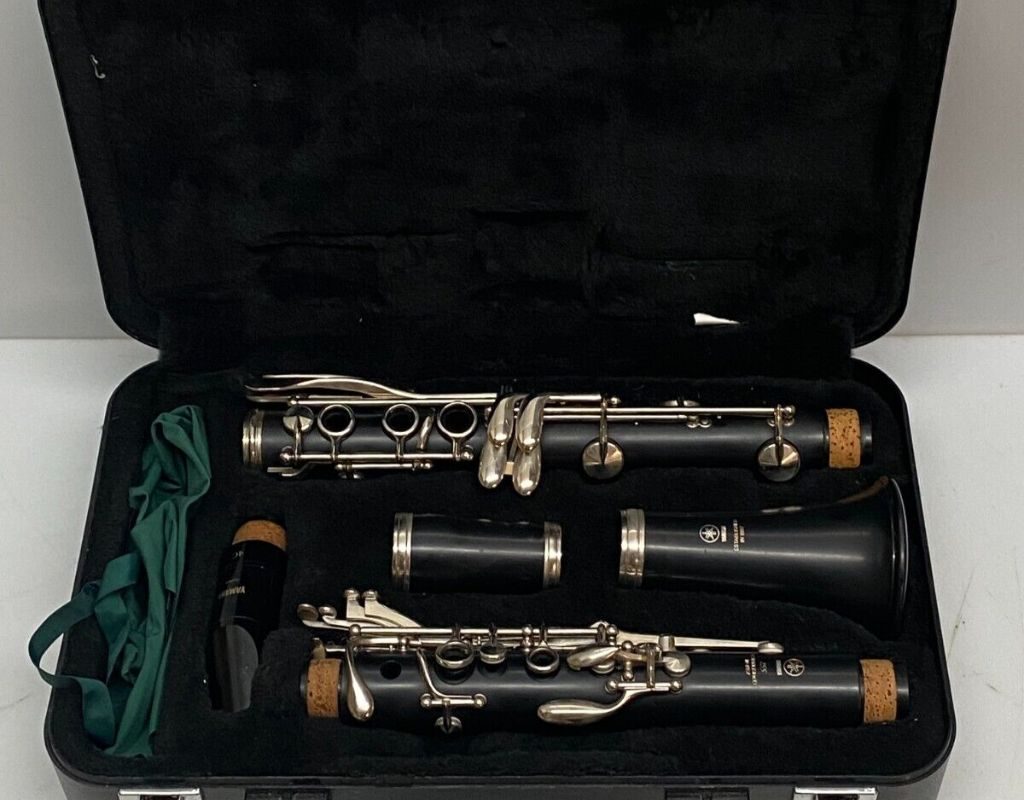
The Yamaha YCL-255 is a standout model for novice players. It’s crafted with a durable ABS resin body, mimicking the sound and look of a wooden clarinet without the susceptibility to environmental changes.
The clarinet has a responsive tone and ease of play, making it an ideal choice for my budding clarinetists. Moreover, the adjustable thumb rest and strap ring offer comfort and support, a crucial factor during long practice sessions.
Yamaha’s attention to detail is clear in the YCL-255’s design. Its silver-plated keys add a touch of elegance and the resilience to endure countless hours of practice.
Yamaha YCL-255 Student Clarinets
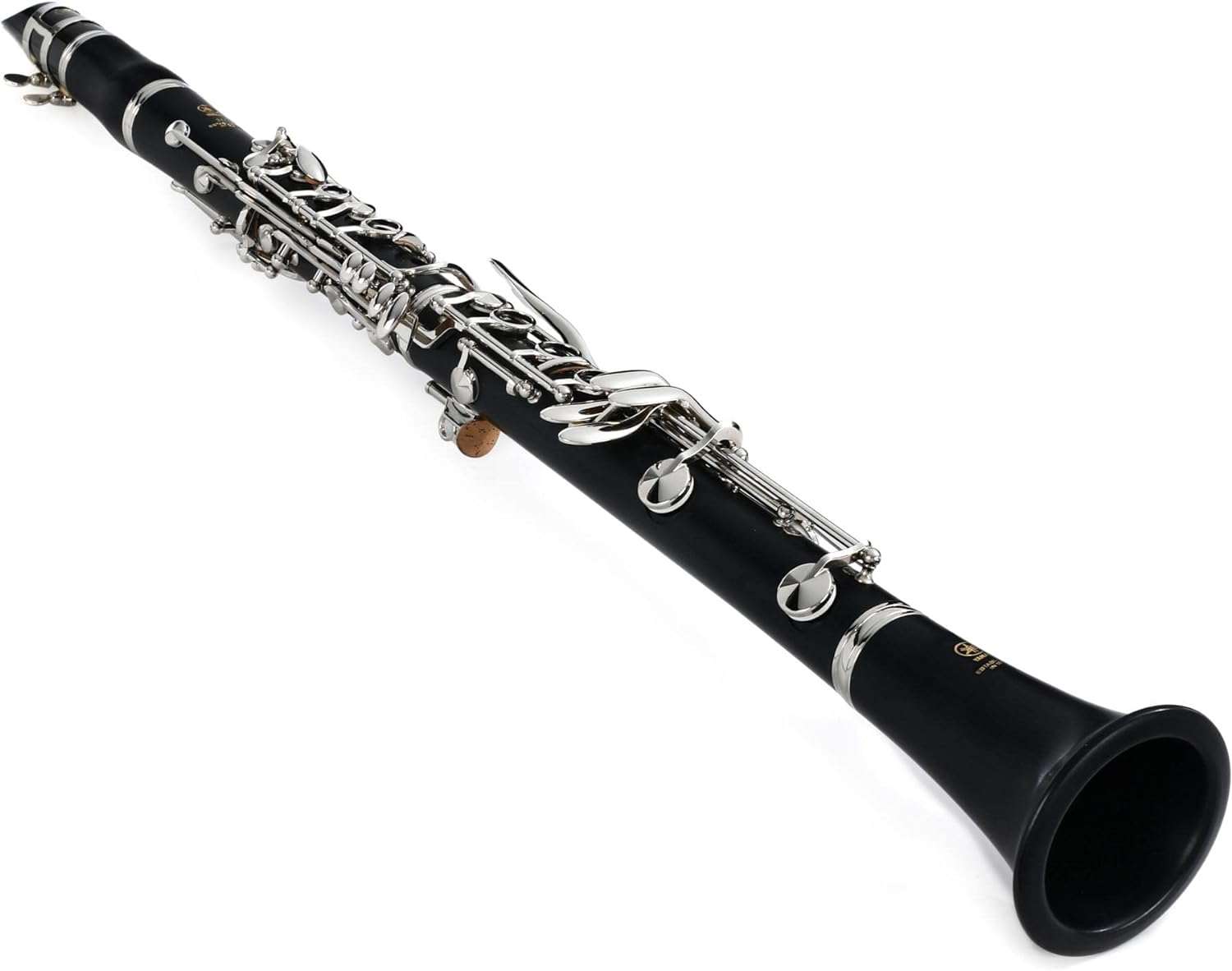
FEATURES: Bb clarinet with Boehm key system, 17 keys, and 6 rings.
OTHER INFO: Nickel-plated keys and Valentino pads.
- Adjustable thumb-rest helps to develop proper technique.
- Includes a 4C mouthpiece — an ideal choice for developing players.
- It may require occasional adjustments for optimal performance.
When you click ‘Check Price’, you’ll see there are loads of great places to buy this item. Our personal favorite is Sweetwater for the US, and Thomann and Gear4Music for the UK & Europe.
They are the largest music retailers, with excellent customer service, competitive prices, really fast shipping, and the longest guarantees.
The professional musician who wrote this article combined many things,
from the product build, manufacturer’s reputation through to feedback
from other users, to create our famous TedScore™.
Jupiter JCL700
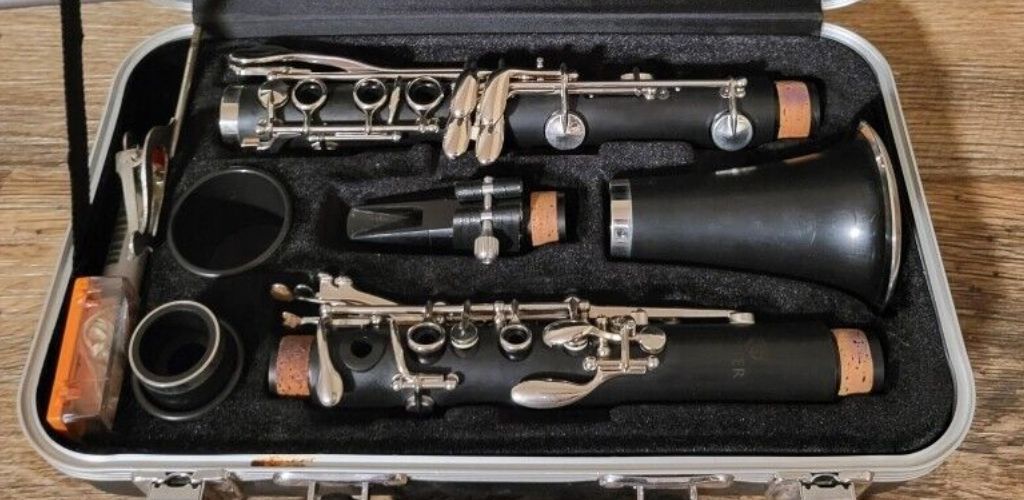
Moving on to the Jupiter JCL700 Beginner Bb Clarinet, this model is exceptionally friendly to my new players. It boasts a robust build quality with nickel-plated keys and a body designed for longevity.
The JCL700 is known for its ease of playability and pleasant sound, which is quite encouraging for students as they learn their scales and songs.
The Jupiter JCL700 not only comes with all the necessary accessories for a beginner, but it also shines in comfort and playability. It is an impressively good value for the money and a reliable partner as I guide my students through their early musical journey.
Jupiter JCL700 Clarinet

FEATURES: Matte ABS body for durability and wood-like sound.
OTHER INFO: Responsive nickel-plated keys with undercut tone holes for better intonation.
Jupiter JCL700 Clarinet
- Adjustable thumb rest with strap ring for comfort and security.
- Mouthpiece preference may vary among players.
When you click ‘Check Price’, you’ll see there are loads of great places to buy this item. Our personal favorite is Sweetwater for the US, and Thomann and Gear4Music for the UK & Europe.
They are the largest music retailers, with excellent customer service, competitive prices, really fast shipping, and the longest guarantees.
The professional musician who wrote this article combined many things,
from the product build, manufacturer’s reputation through to feedback
from other users, to create our famous TedScore™.
Price Considerations
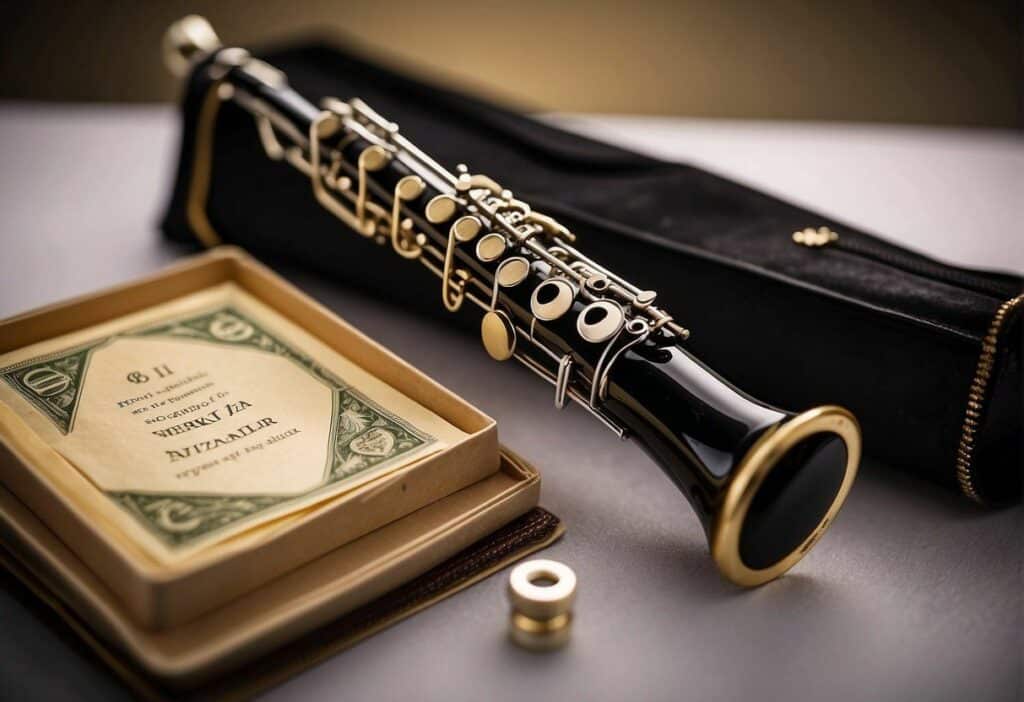
When I first considered playing the clarinet, I immediately realized how essential it is to balance the price with quality. Let’s explore wallet-friendly options for novices and consider the long-term value of these instruments.
Long-Term Investment Value
Selmer CL301 Student Clarinet
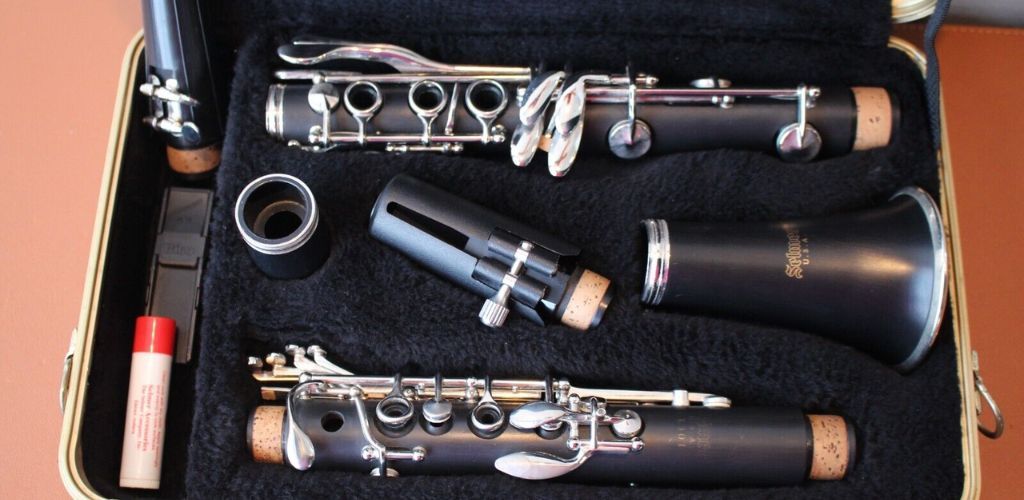
Selmer’s CL301 strikes a delicate balance, being relatively inexpensive and reasonable. Such mid-range instruments can be a wise choice if you’re seeking longevity without the steep price tag of professional models.
Investing a bit more initially can sometimes lead to savings in the long run through fewer repairs and higher resale value.
Selmer CL301 Student Clarinet
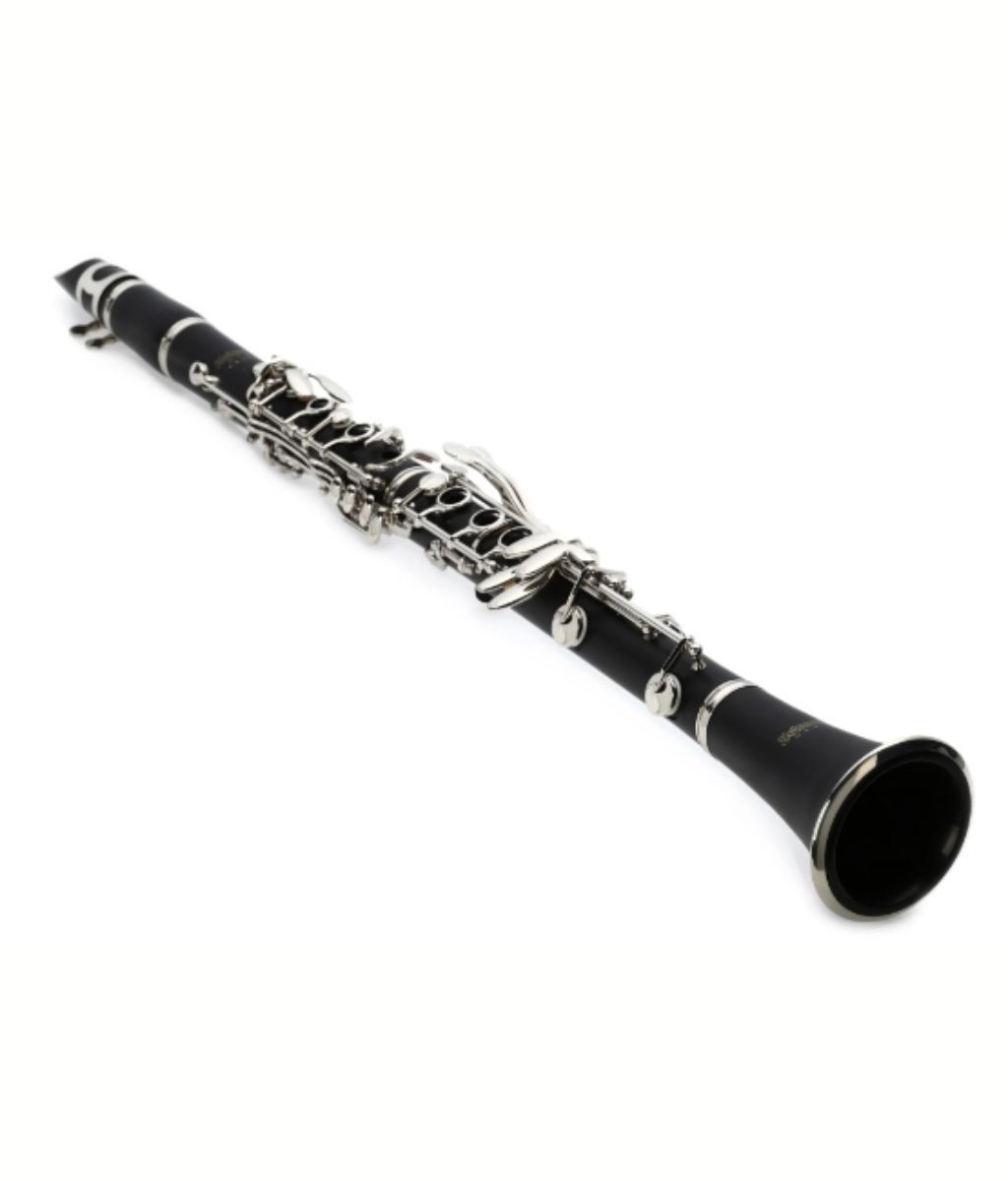
FEATURES: Attractive satin wood-like appearance.
OTHER INFO: Drop-forged nickel-plated keys with undercut tone holes.
- Composite body resists damage from temperature, humidity, and daily use.
- Includes a beginner-friendly hard rubber mouthpiece and case.
- Limited availability and may not be as widely accessible.
When you click ‘Check Price’, you’ll see there are loads of great places to buy this item. Our personal favorite is Sweetwater for the US, and Thomann and Gear4Music for the UK & Europe.
They are the largest music retailers, with excellent customer service, competitive prices, really fast shipping, and the longest guarantees.
The professional musician who wrote this article combined many things,
from the product build, manufacturer’s reputation through to feedback
from other users, to create our famous TedScore™.
Buffet Prodige Bb Clarinet
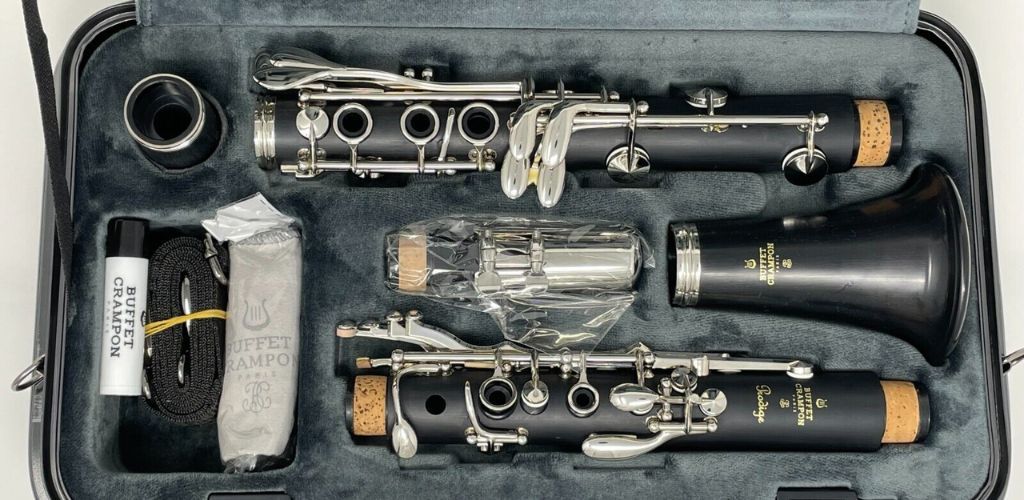
Models such as the Buffet Prodige Bb Clarinet are known for their solid build and is a great bang for the buck. It’s reassuring that instruments offer decent quality without breaking the bank, especially when you’re a beginner like me.
Buffet Prodige Bb Clarinet

FEATURES: Bore design based on Buffet's popular E13 clarinet.
OTHER INFO: Quintessential Buffet design.
Buffet Prodige Bb Clarinet
- High-quality construction and materials.
- Limited availability in some regions.
When you click ‘Check Price’, you’ll see there are loads of great places to buy this item. Our personal favorite is Sweetwater for the US, and Thomann and Gear4Music for the UK & Europe.
They are the largest music retailers, with excellent customer service, competitive prices, really fast shipping, and the longest guarantees.
The professional musician who wrote this article combined many things,
from the product build, manufacturer’s reputation through to feedback
from other users, to create our famous TedScore™.
Brands and Manufacturers
Selecting a suitable clarinet for beginners is a crucial decision that has shaped my musical journey. Let me introduce you to some of the most reputable brands that offer quality clarinets tailored for beginners.
Buffet Crampon
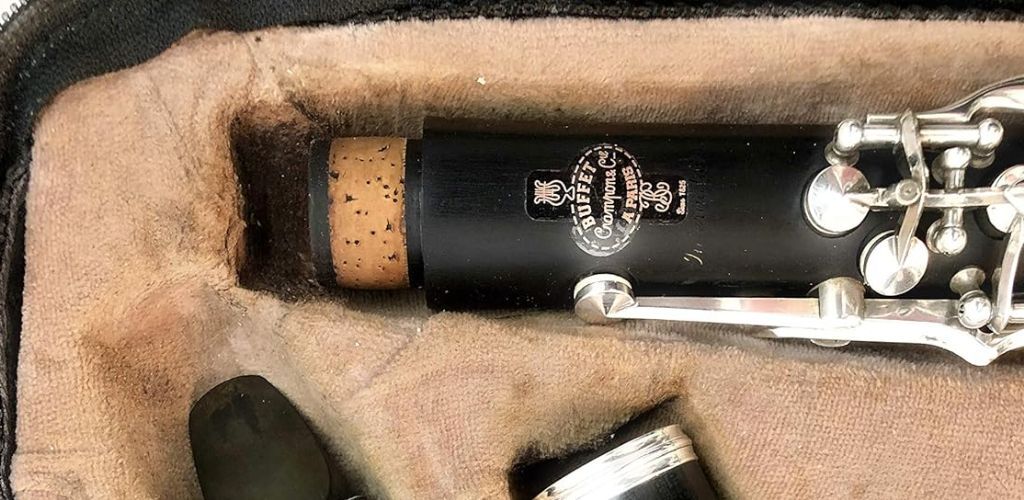
Buffet Crampon stands tall as a leading clarinet brand, setting the benchmark for quality. I’ve found that their instruments provide a rich tone and reliable playability, which are indispensable for new learners.
Selmer
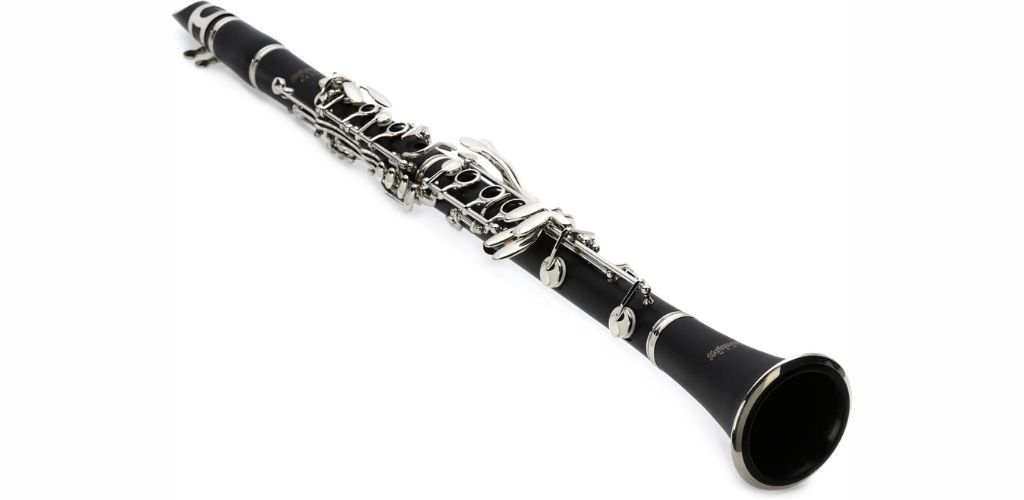
Selmer is synonymous with a robust build and graceful sound, which beginners like me appreciate. Their models strike a delicate balance between quality and affordability, an essential factor when starting.
Yamaha
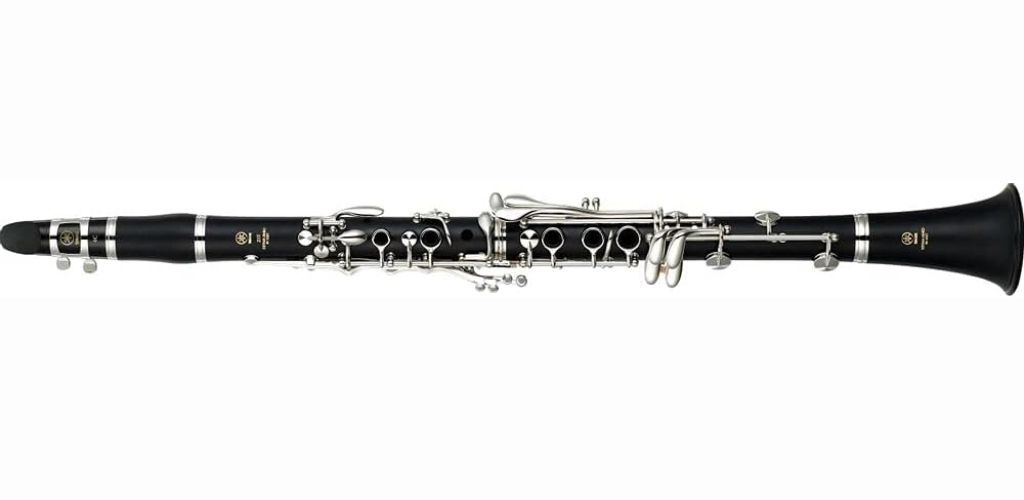
Yamaha‘s reputation for producing versatile clarinets is well-earned. They design beginner instruments that closely mimic professional models, offering me a seamless transition as I improve.
Clarinet Reviews and Recommendations
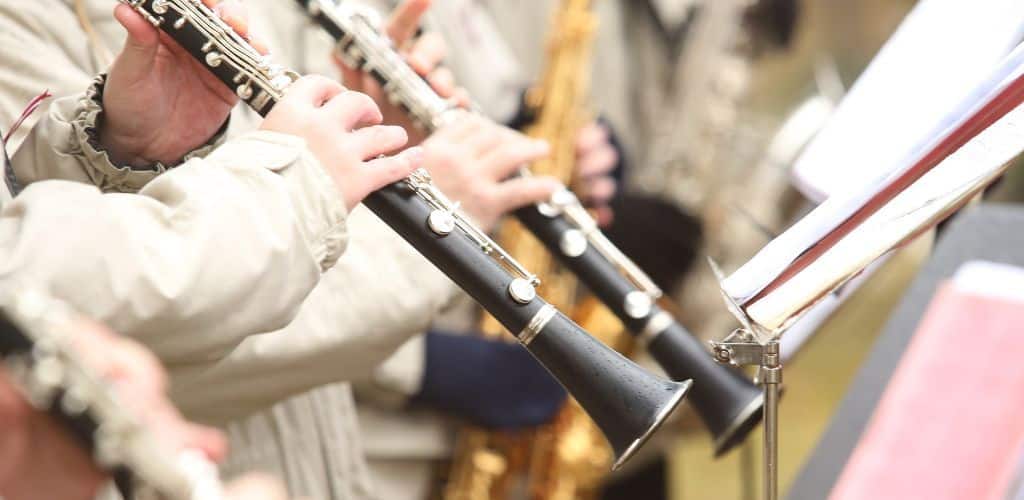
In my quest to find the best clarinet for beginners, I’ve scrutinized expert opinions and customer feedback. Let’s dive into the specifics to ensure you can make an informed decision.
Professional Input
Experts often praise the Yamaha YCL-255 for its consistent intonation and ease of play, a perfect match for novices. Professionals frequently recommend the Jupiter JCL700, highlighting its robust construction and impressive sound quality for an entry-level instrument.
While pricier alternatives like the Buffet Crampon Prodige exist, these models are commended for easing students’ transition towards professional instruments.
Understanding the Clarinet Family
When I began exploring the clarinet, I discovered it’s more than just a single instrument; it’s an entire family!
Each clarinet type offers a range of sounds and uses, but there’s a clear starting point for beginners.
Types of Clarinets
The clarinet family might seem vast, but I’ll help you understand. Fundamentally, there are several types of clarinets, each with pitch, timbre, and use in ensembles.
The most common types include the Bb (B flat), A, Eb (E flat), Bass, and Alto clarinets. Additionally, more unusual variants, like the Basset Clarinet and Basset Horn, harmonize uniquely.
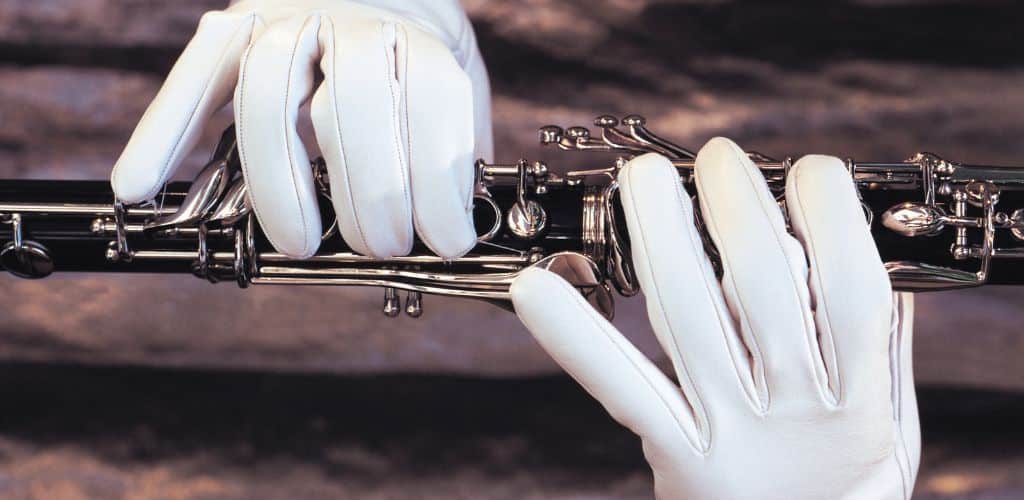
The Bb clarinet often takes center stage for newcomers due to its widespread use in various musical settings, from orchestras to jazz bands.
If we peek into the classrooms, we’ll find the Bb clarinet shining bright as the star for budding musicians. Its cousins—the A and Eb clarinets—and the larger Bass and Alto clarinets tend to find their places later in a clarinetist’s journey, offering a broader canvas of musical expression.
Instrument Accessories
Choosing the right accessories for my clarinet enhances the playing experience and is crucial for the instrument’s maintenance and longevity.
I’ve found specific items are essential for beginner clarinetists to protect and maintain their instruments while ensuring comfort during practice and performance.
Clarinet Case and Maintenance Kit
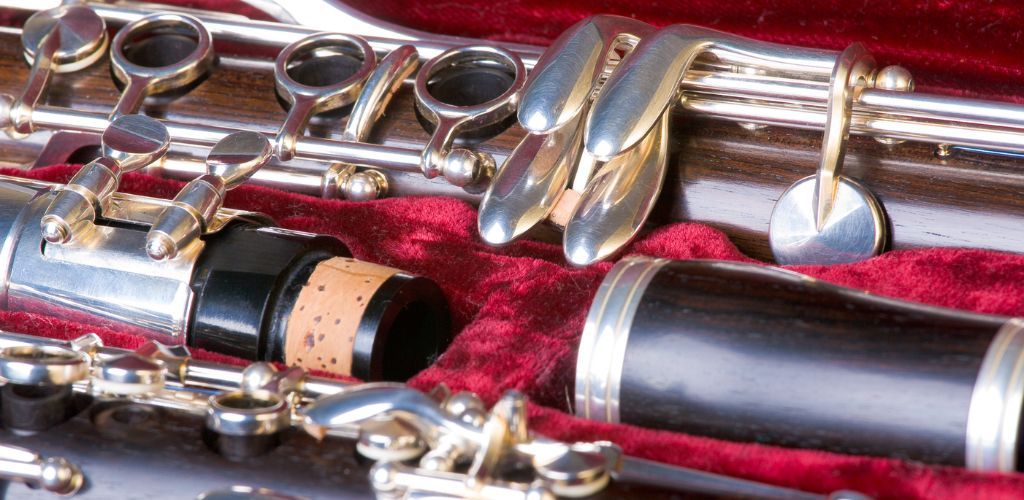
Clarinet Case: A durable clarinet case is vital for protecting my clarinet. It shields the instrument from the elements and accidental impacts.
I always look for a case with a sturdy exterior and a soft, padded interior that snugly fits my clarinet.
Maintenance Kit: A maintenance kit is non-negotiable to keep my clarinet functional. It typically includes a cleaning cloth for wiping away fingerprints and a swab for removing moisture inside the clarinet.
Cork grease is another must-have; it keeps the instrument’s joints lubricated and ensures seamless assembly and disassembly experiences.
Additional Accessories
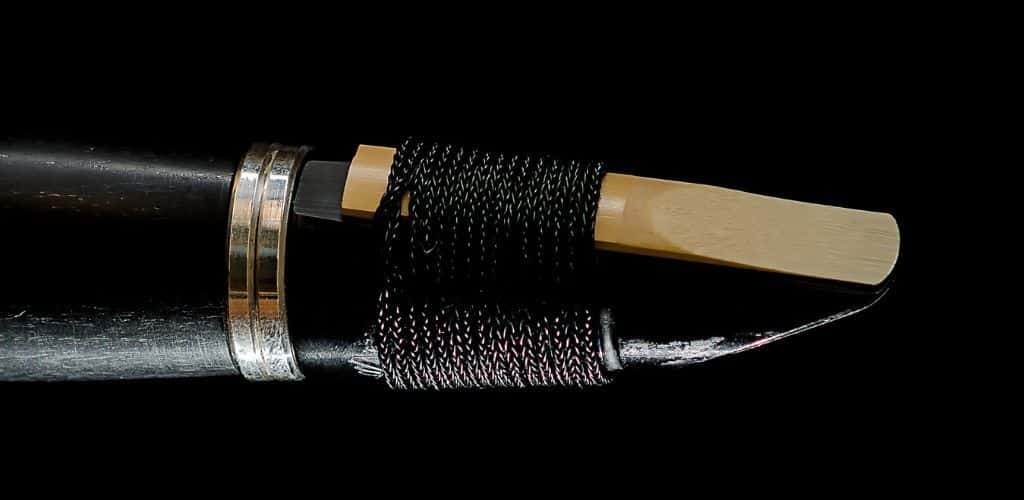
Reeds: I remind fellow beginners that having a few spare reeds is prudent, as they are delicate and can break easily. Typically, a box of 10 is a good start, with 2.5 being the recommended joint strength for beginners.
Mouthpiece: A good mouthpiece profoundly affects my clarinet’s sound. Therefore, I suggest investing in a reliable mouthpiece from a reputable brand, as it can make all the difference for a learner’s tone and ease of playing.
Additional comfortable accessories, such as a thumb rest cushion or a neck strap, can alleviate my fingers and neck strain during lengthy practice sessions. These small investments contribute significantly to my comfort and performance.
Maintenance and Care for Your Clarinet
Proper upkeep is crucial for any clarinet player’s success, especially beginners. I understand that regular maintenance ensures longevity and optimal performance of your clarinet.
Regular Cleaning
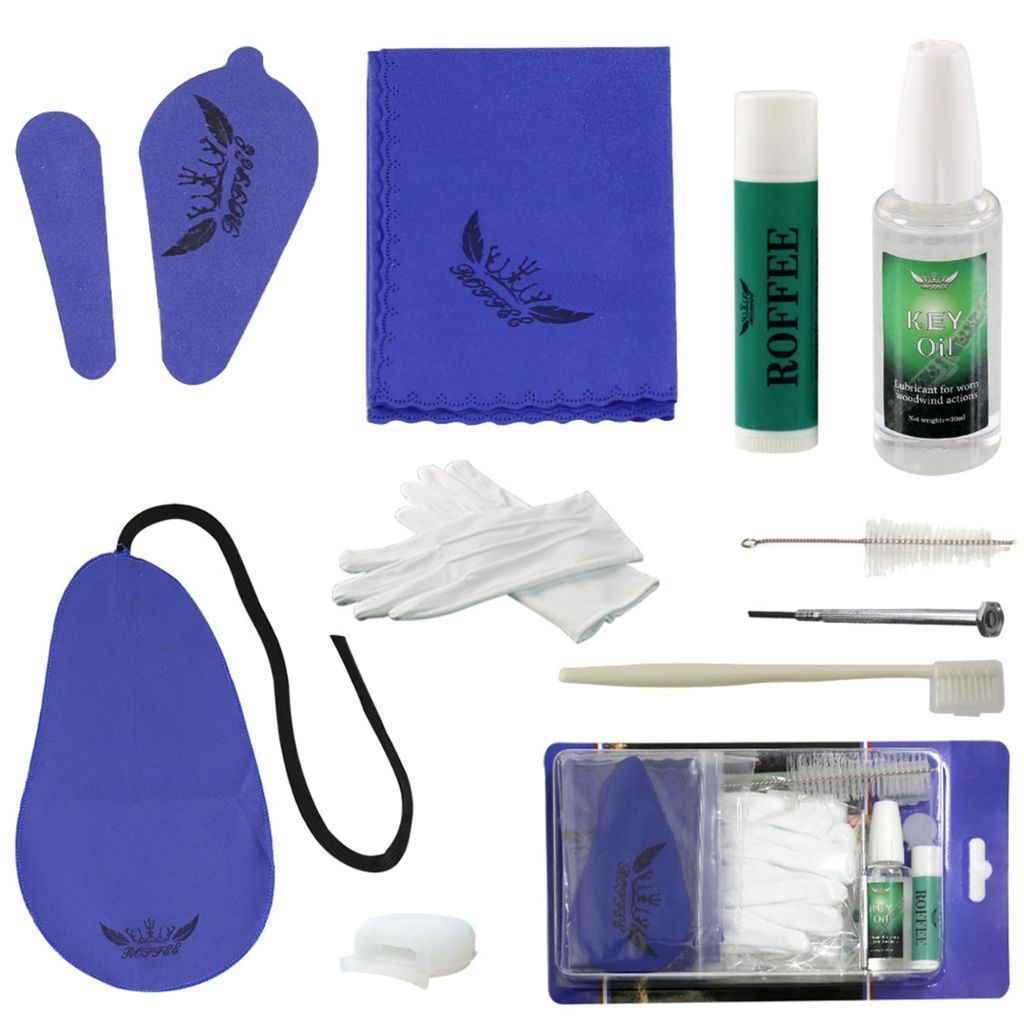
After each use, I always swab out my clarinet to remove moisture. This is particularly important for the barrel and mouthpiece.
I gently remove the reed and use a soft cleaning cloth to clean the mouthpiece, avoiding the delicate reed tip. I also apply cork grease carefully to keep the joints supple and prevent stiffness.
For the nickel keys, I suggest wiping them with a dry cloth to prevent tarnishing. I oil them three to four times yearly to ensure the instrument’s smooth operation.
A drop of key oil on each nickel key keeps their movement slick and prevents squeaky distractions.
Storage and Handling
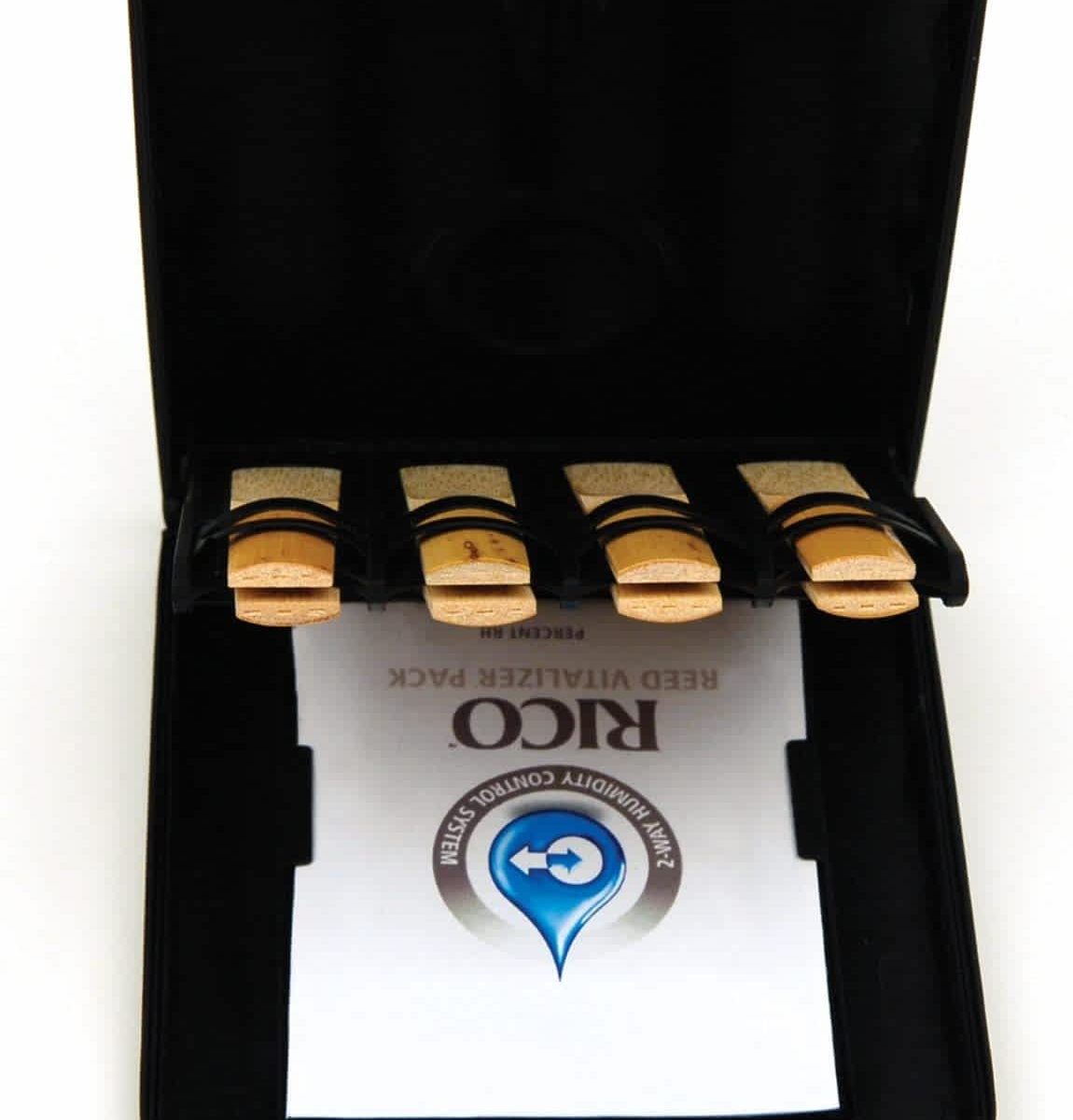
I store my clarinet in a temperate environment away from extreme temperatures. Whether hot or cold, extreme temperatures can harm the instrument.
When placing it down, I only stand it on its end if it’s on a dedicated clarinet stand, which safeguards it from accidental damage.
For maximum protection, I always store my reed in a reed holder. It’s a simple step that maintains the reed’s shape and quality. Securing the reed correctly also ensures that my clarinet produces the clearest tones the next time I play.
I’m meticulous when storing my clarinet in its case to shield it from dust and mishaps, a habit that serves me well in maintaining my instrument’s condition.
What type of clarinet is best for beginners:
We Reveal All
When choosing my first clarinet, I consider my budget and needs first. It’s essential to find a balance between cost and quality. A beginner’s clarinet should be easy to play and durable so I can learn without needing frequent repairs.
The B♭ clarinet is the best starting point for beginners like me. I’d look for models with solid construction and essential accessories.

Brands like Yamaha and Jupiter make reliable student clarinets, often including a case, reeds, and maintenance supplies. Getting all of these in one purchase saves time and money.
A comfortable mouthpiece and adjustable thumb rest can significantly affect my playing experience, making long practice sessions more comfortable. I prefer clarinets that make learning easy, with features that help me improve.
Lastly, feedback from teachers and fellow beginners can be constructive.
As you chose your beginner clarinet, it marked the beginning of your musical journey. With careful thought and your style, you’re all set to start learning and making music with your clarinet.
Hang on, there’s more…
Check out this article, which provides clear recommendations for the best clarinet reeds for beginners, offering valuable insights into the best options for new players. It’s a helpful resource for those seeking guidance on selecting the right reeds to support their early clarinet playing experience.
FAQ's
Students often use Bb (B-flat) clarinets as their primary instrument for learning and practicing. These clarinets are widely used in school bands and are well-suited for beginners due to their versatility and accessibility.
Consider your budget, skill level, and musical goals when choosing a clarinet. It’s important to try out different models, seek advice from experienced players or teachers, and consider the instrument’s construction, playability, and included accessories to find the best fit for your needs.
The beginner clarinet is typically called a Bb (B-flat) clarinet. This type of clarinet is commonly recommended for new players due to its size, playability, and widespread use in school music programs.
For beginners, the Vandoren Traditional or Vandoren 56 Rue Lepic is a popular and recommended clarinet reeds. These reeds are known for their consistency and ease of play, making them well-suited for novice clarinetists. Additionally, for those transitioning to the alto sax, selecting appropriate saxophone reeds and clarinet mouthpieces can facilitate a smooth adjustment to the new instrument.











Love this guide, super helpful for a newbie like me!
Interesting take on beginner clarinets. From a sax player’s perspective, the transition can be intriguing. However, I read that the mouthpiece and reed quality drastically affects playability. Wouldn’t it be more beneficial to focus on these components rather than the body material? Keen to hear others’ thoughts.
Plastic clarinets, huh? Makes sense for beginners. Wooden ones must be for the pros. 🙂
Actually, plastic clarinets can offer a surprisingly good sound and are perfect for those just starting. Wood clarinets do offer a richer tone but come with a higher price and need more care.
Hey there, Kymia Kermani, I’m on the hunt for a beginner clarinet for my kiddo, and stumbled upon your detailed outline. You mention the Yamaha YCL-255 and Jupiter JCL700, which sound like great options! Could you share more on why these are top picks for beginners? I’m leaning towards durability and ease of play since, you know, kids will be kids, and I’d love something that won’t fall apart too easily but also isn’t super challenging to get a decent sound out of. Thanks a bunch for making this search easier!